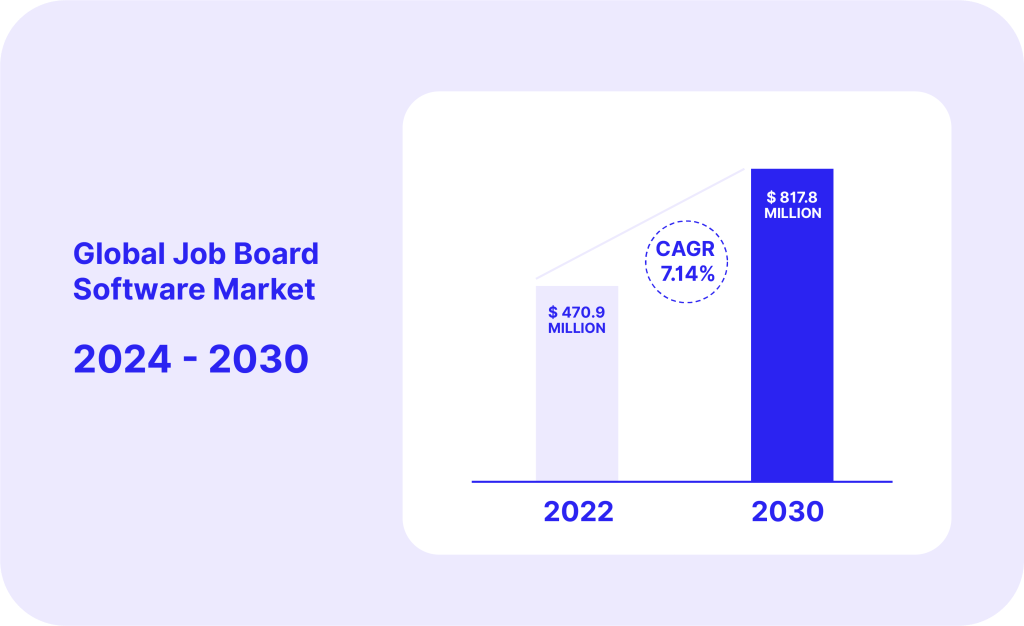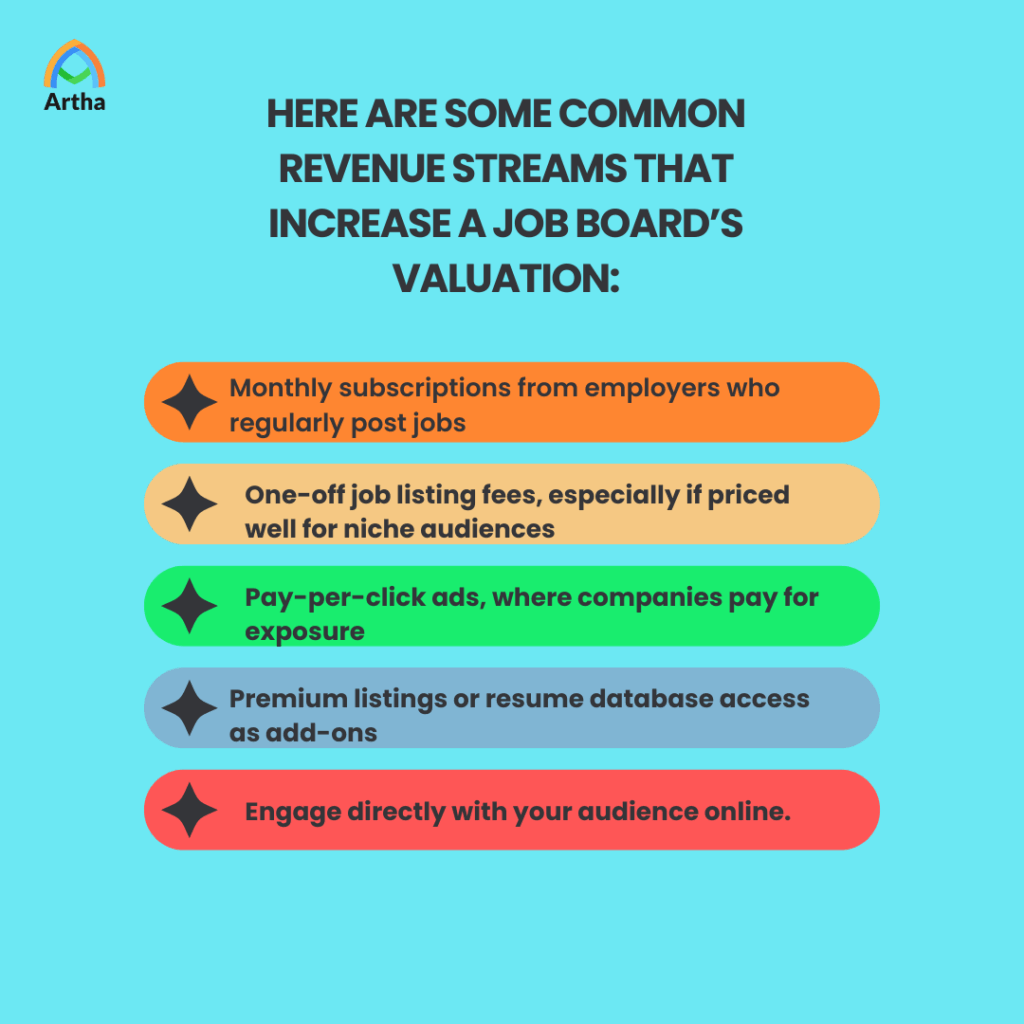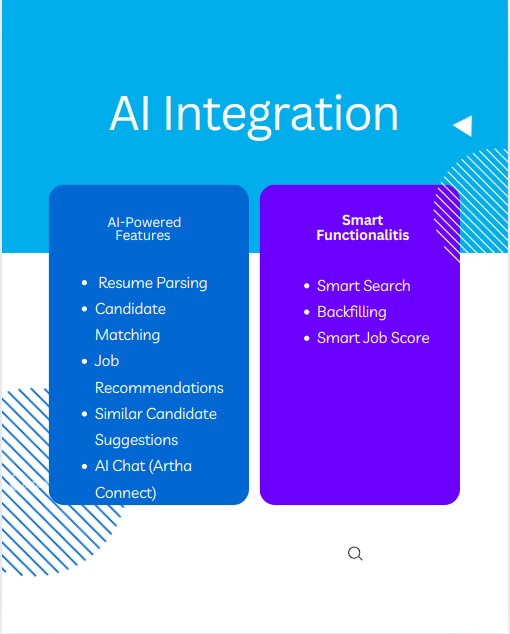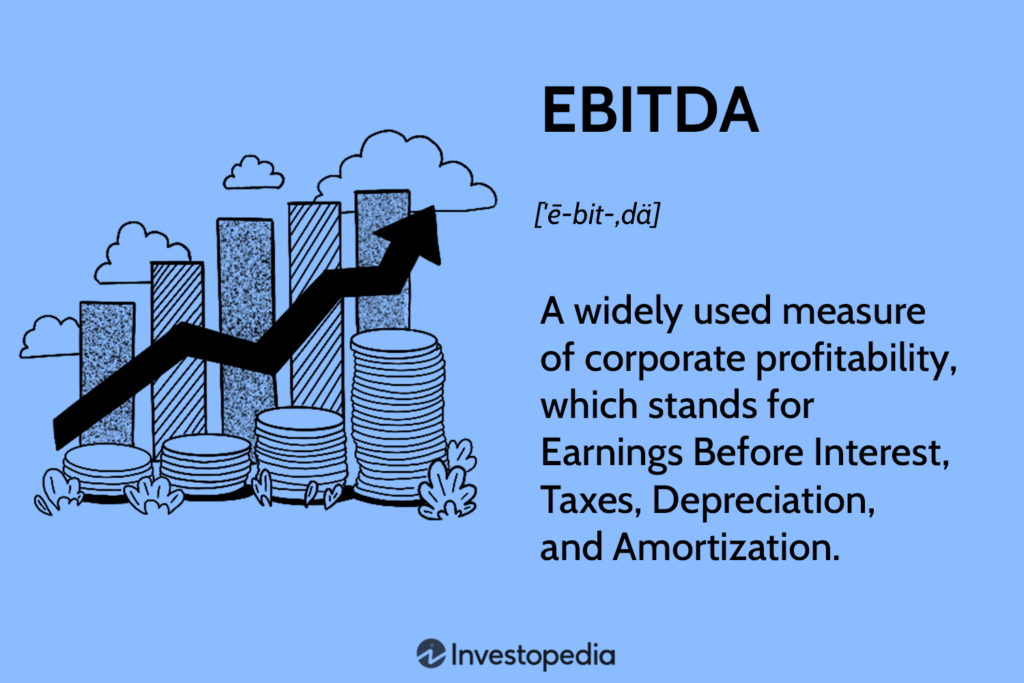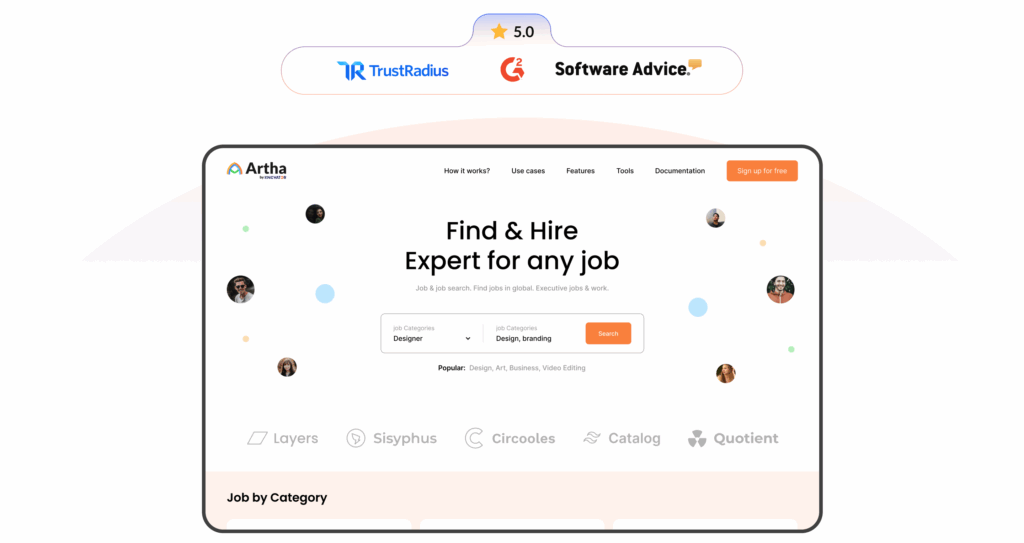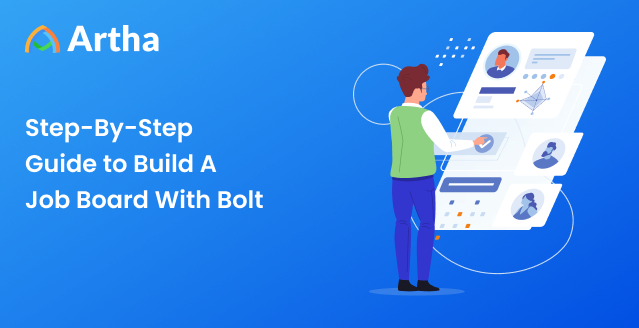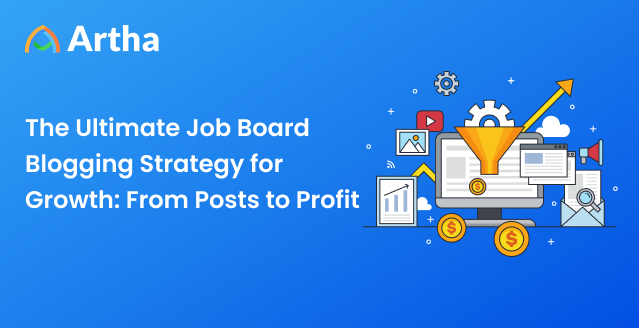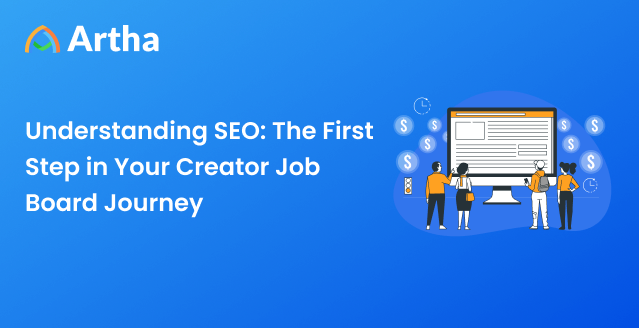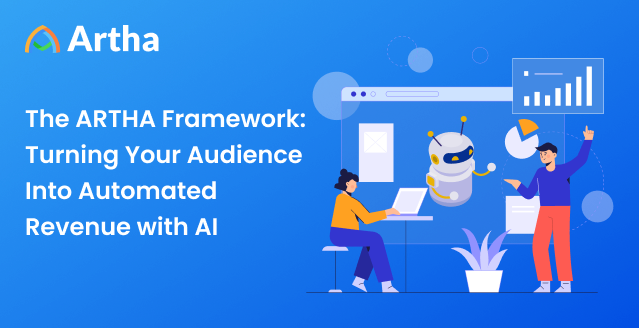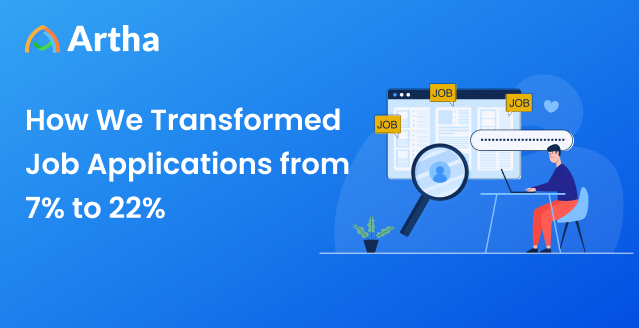3 Top Methods to Calculate the Valuation of a Job Board: What Investors Look For
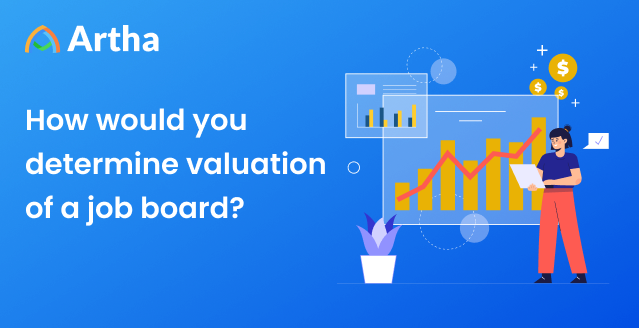
Meet Arjun.
He’s a recruiter-turned-entrepreneur who launched a niche job board two years ago, focusing on green tech startups. What started as a weekend side project now sees hundreds of job listings and thousands of applicants every month. But recently, investors have started circling—and Arjun is being asked a question he never thought he’d need to answer:
“What’s your job board worth?”
The job board market is booming, and understanding your valuation of a Job Board can help you position it among the top players. But valuing a job board isn’t as simple as checking follower counts or traffic numbers. Job board valuation is part art, part science, and completely essential in understanding your business better.
In this guide, we’ll break it all down. You’ll learn how job board valuation works, what factors matter most, and how you can boost the value of your own platform. Also if you want to understand how a job board can be a game changer See Jobshala’s Growth Journey now
What Actually Influences a Valuation of a Job Board?
Arjun needs to understand what makes a job board valuable—not just emotionally, but financially. So what are investors and buyers really looking at when they ask, “What’s your job board worth?”
Let’s break it down.
-
Revenue & Profitability
Let’s start with the big one—money.
Yes, your job board might have heart. But if it’s not earning consistently, its valuation will suffer.
Now here’s the catch: it’s not just about making money—it’s about how predictably you make it. One-time revenue can be nice, but recurring income? That’s music to an investor’s ears.
In Arjun’s case, his board brings in around $5,000 a month from subscriptions alone. That’s not just impressive—it’s sustainable. And that steady, recurring revenue forms the backbone of how much his job board could be worth on paper.
-
Traffic & User Engagement
Now, let’s talk numbers that don’t go straight to your bank account—but matter just as much.
Because here’s the truth: You could have the best-looking job board in the world, but if no one’s using it—or worse, if they bounce after 10 seconds—you’ve got a problem.
Investors will ask:
- How many people visit your job board each month?
- How long do they stay?
- Are they actively applying for jobs?
- Do employers keep coming back to post more?
These metrics help paint a clear picture of how healthy your platform really is. Engagement equals trust. And trust means employers are more likely to pay.
In Arjun’s case, users are spending over 3 minutes per session, with multiple job views. That tells potential buyers, “This isn’t just a website—it’s a destination.”
-
Market Position & Niche
Okay, now let’s zoom out a little. Who exactly is your job board for?
Here’s where niche comes into play—and trust us, niche is your superpower.
Trying to serve “everyone” usually means you’re fighting for attention in a crowded room (looking at you, Indeed and LinkedIn). But when you zero in on a specific audience—like Arjun did with green tech startups—you suddenly become the go-to resource in that space.
Niche job boards often have:
- Higher loyalty from both employers and job seekers
- Less competition (fewer players in the space)
- Better word-of-mouth and community building
So while a broad job board might boast bigger numbers, a specialized one could actually be more valuable per user—because it solves a clear, focused problem better than anyone else.
-
AI Integration
We can’t talk about growth and value in 2025 without bringing up AI. From smarter job matching algorithms to auto-generated job descriptions, AI isn’t just a buzzword—it’s the backbone of modern job boards.
And Arjun’s job board? It’s already ahead of the curve. Here’s what Arjun’s platform had under the hood:
These features didn’t just sound cool—they made users stay longer, apply more often, and recommend their friends.
So, when investors asked what made his job board stand out?
He didn’t have to pitch a dream.
He just showed them the tech.
5. Growth Potential
Finally, let’s talk about what investors really love—potential. They’re not just looking at what you’ve done so far. They want to know:
- Can this grow 5x with the right push?
- Could it expand into new markets or verticals?
- Are there opportunities to partner with schools, accelerators, or industry hubs?
- What tech integrations could make it scale faster?
In Arjun’s case, he’s already getting requests from other sustainability sectors—clean energy, circular economy, even eco-fashion. That’s a sign his board isn’t a one-trick pony. It’s a platform that could grow, diversify, and thrive with the right strategy.
So…How Do You Actually Get Valuation of a Job Board?
There are three main ways people figure out what a job board is worth. Think of them as different lenses you can use to view your business.
1. Income-Based Valuation
This is the most common way to figure out what your business is worth. And the go-to metric here is something called EBITDA.
Wait—what’s EBITDA?
EBITDA stands for:
Earnings Before Interest, Taxes, Depreciation, and Amortization.
Yeah, it’s a mouthful. But here’s what it really means:
It’s your job board’s true profit—before any accounting tricks or tax stuff gets in the way.
Most job boards sell for about 2x to 4x their annual profit. So, if your board makes $50,000 in profit a year, it might be worth somewhere between $100K and $200K.
Why the range?
Because if your job board is growing fast, has loyal users, and brings in recurring income (like monthly subscriptions), it’ll likely land on the higher end.
2. Market-Based Valuation
What are other job boards like yours selling for?
This is kind of like checking real estate comps when selling a house. Investors or buyers will look at similar job boards that were recently sold or funded and use that as a benchmark.
So if a niche AI job board just sold for 3.5x its revenue, that gives you a helpful benchmark for your own.
It’s not exact science, but it’s a great way to gauge what the market is willing to pay right now.
3. Asset-Based Valuation
Translation: What stuff do you own that adds value?
This one’s used less often, but still important—especially if your board isn’t making a ton yet, but has a solid foundation.
Investors will look at your assets, which might include:
- Your domain name (especially if it’s catchy or keyword-rich)
- An active, engaged email list
- Your website design and backend software
- Brand equity (Is your board known and respected in the space?)
- Your site traffic and SEO rankings
This method is more about what you’ve built than what you’ve earned—but that can still carry serious value.
Which Method Is “Right”?
Honestly? Most investors or acquirers use a mix.
They’ll look at your income, compare you to the market, and assess your assets to form a complete picture. Think of it like a 3-legged stool: you need all three to sit steady.
For Arjun, his valuation isn’t just about the $5K/month he’s bringing in. It’s also about:
- His loyal, growing user base
- The specialized niche he dominates
- The AI tech powering his board behind the scenes
Together, these factors create value—not just for today, but for what the business could become tomorrow.
Tools That Make Job Boards More Valuable
If you’re like Arjun, building a job board started as a passion project—a way to solve a real problem for a community you care about. But then, as things grow, you realize running a job board isn’t just about posting jobs. It’s about turning that passion into something sustainable, something that supports you financially without burning you out.
That’s where having the right tools really matters. Because behind every valuable job board is a system that helps you manage it all—without the overwhelm.
This is exactly what Artha Job Board offers. It’s like having a trusted partner who helps you focus on what you love while giving you the power to make your job board truly shine.
Here’s what makes Artha different:
For Candidates: Helping Job Seekers Shine
- Artha AI Resume Parser: AI instantly extracts and organizes key info from resumes, saving time for both candidates and employers.
- Comprehensive Candidate Profiles: Candidates build standout profiles highlighting their skills and achievements, making it easier to get noticed by the right employers.
Also Read: Success Story: The Power of One-Click Job Applications
For Employers: Making Hiring Smarter and Faster
- Artha Smart Backfilling: Keeps your job board fresh and active by automatically filling in relevant job listings.
- Artha Smart Search: Hyper-targeted, real-time filters help employers find the perfect candidates quickly.
- Artha Connect: Real-time, encrypted messaging keeps communication flowing smoothly between employers and candidates—no delays, no missed opportunities.
For Admins: Powering Efficient Management
- Artha Smart Importer: Import bulk candidate and job data seamlessly to build a complete, organized talent pool.
- Artha AI Resume Parser: Automate candidate screening with AI that extracts key resume details for fast, accurate assessments.
- Artha Custom Field: Tailor job application forms with specific fields to screen candidates better and faster.
Why Does This Matter for Creator Income and Growth?
Using tools like these means your job board isn’t just a hobby—it’s a real business asset. You’re not stuck juggling everything manually or struggling to monetize your work. Instead, you have multiple creator income streams working smoothly behind the scenes.
Investors, partners, and users all notice when your job board runs like a well-oiled machine—where engagement stays high, listings stay fresh, and revenue is predictable. That’s what boosts your creator economy earnings and builds lasting value.
With Artha, you get a platform that respects your need for brand control, supports passive income for creators, and equips you with creator monetization tools designed to grow with you.
Want to Maximize Valuation of Your Job Board? Here’s How
Building a job board is a journey. And if you want yours to be more than just a passion project—if you want it to be a real, valuable asset that supports you financially—you’ve got to think smart about growth and sustainability. Here are some key steps that can help you maximize your job board’s value and turn it into a thriving business:
1. Diversify Your Income Streams
Relying on just one way to make money—like charging for job listings—can be risky. Instead, build multiple revenue streams that work together.
2. Focus on a Niche
Trying to be everything to everyone usually means you get lost in a crowded market. Instead, pick a specific niche—like Arjun did with green tech startups—and become the go-to hub for that community.
3. Track Engagement Metrics Religiously
Numbers don’t lie. Pay attention to your Monthly Active Users (MAUs), bounce rates, time spent on your site, and conversion rates. These essential job board metrics tell you how well your job board is really performing and help you spot opportunities to improve.
4. Invest in Your Branding
Your job board’s brand is more than just a logo or colors—it’s the promise you make to your users. A strong brand builds trust, encourages repeat visits, and helps you stand out from generic job sites.
5. Automate Wherever You Can
Running a job board can get overwhelming if you try to do everything manually. Use automation tools—like Artha’s AI Resume Parser, Smart Backfilling, and real-time analytics—to streamline your operations. Automation helps you save time, reduce errors, and scale your job board without burning yourself out.
Conclusion:
Whether you’re just starting out with a side hustle or planning to scale your platform to sell or raise funds, knowing how to value and grow your job board isn’t a luxury—it’s essential.
Because one day, someone will ask you the big question:
“So… what’s your job board really worth?”
When that moment comes, you won’t have to guess. You’ll have the data, the growth strategy, and the confidence to give an answer that shows the true value of everything you’ve built.
And that’s when your job board stops being just a website—and becomes the asset you always hoped it could be.
